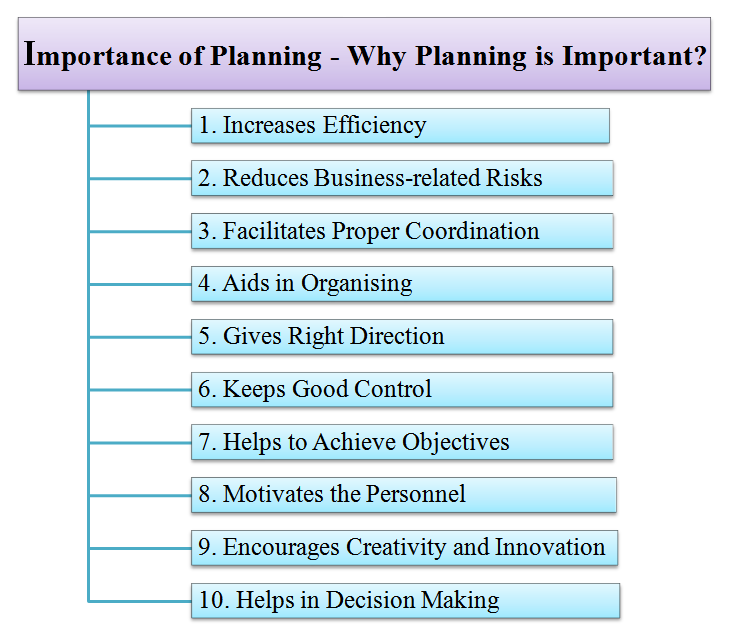Planning encompasses defining your departmental goals, setting up an overall strategy for achieving these goals and developing a comprehensive hierarchy of plans to integrate and coordinate activities. It is concerned, then, with ends (what is to be done) as well as with means (how it is to be done).
Some of the benefits of planning are:
Direction And Teamwork: People need clear goals and guidance on how to achieve these goals. They need to know their roles within the organisation.
Preventing Problems: A major benefit of planning is that potential problems can be predicted, and steps taken.
Better Decision-Making: Knowing where you are going and what you need to do to get there will help you to make good decisions.
Efficiency: Planning shows coordinated efforts. It reduces overlapping and wasteful activities. Quite simply, the better you are planning, the more efficient you will be.
Control: Planning shows goals or standards that help control. Through planning we can compare actual performance against the goals, showing any significant deviants and take the necessary corrective action. It is easier to implement control measures if each step of the way has been planned beforehand.
Reduces Uncertainty: By forcing managers to look ahead, they can predict change, consider the impact of change, and develop proper responses. planning reduces uncertainty. It also clarifies the consequences of the actions that managers might take in response to change.
